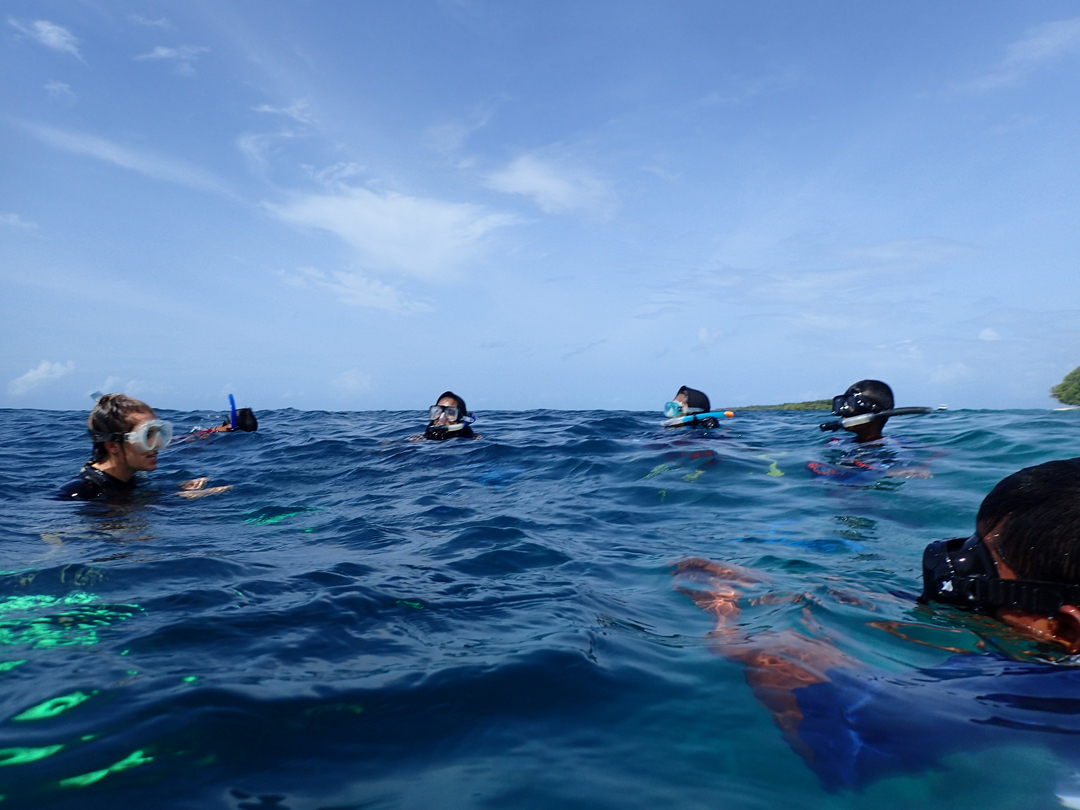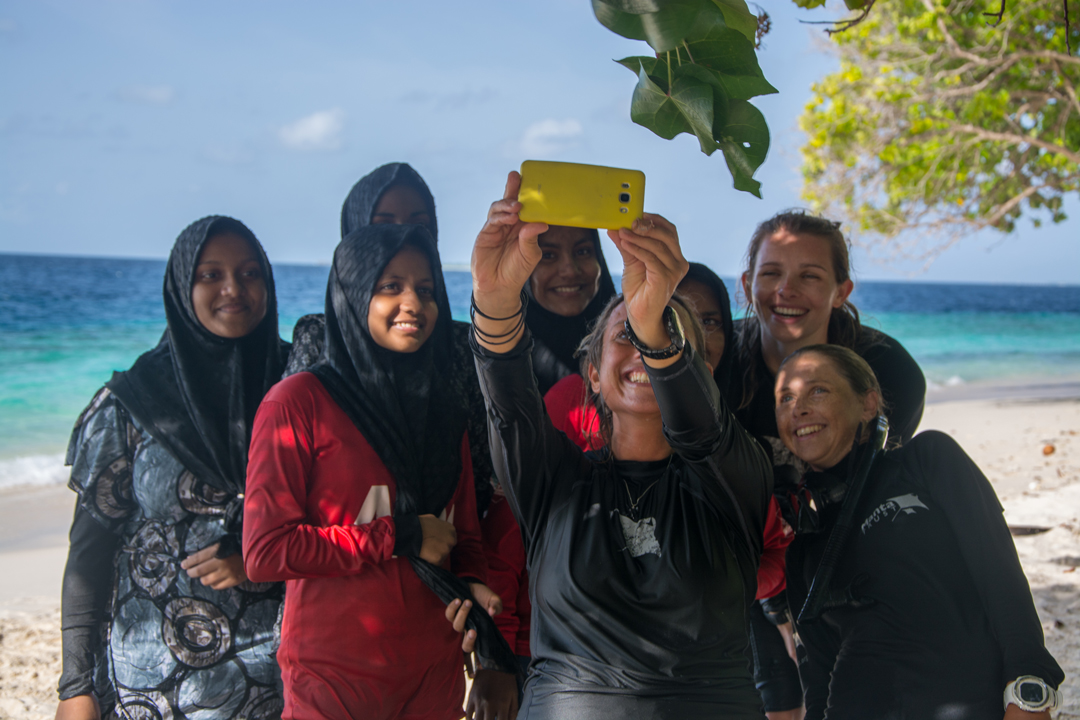Marine Education in the Maldives: getting girls in the ocean! Part 2
Following on from Part 1
Analysis of surveys completed by each student before and after taking part, revealed that our Marine Education Programme was highly effective at increasing marine environmental awareness, engagement and knowledge. The results are encouraging in showing that marine environmental education which incorporates fieldtrip-based learning could improve environmental awareness and assist sustainable development in the Maldives. However, analyses also identified a consistent and significant gender disparity in the Maldives, with females scoring lower on average than males in all categories, but especially in marine engagement. Despite this, it was encouraging to see that the female students’ marine environmental engagement, attitude and knowledge scores increased significantly after the programme.

After a theory lesson, the students are taught about turtles and reef fish first-hand. Photo Adam Thol'Hath | © Manta Trust
For me, the biggest success of this initiative was getting the girls interested and confident in the ocean. We cannot love something and want to protect it unless we can see it and access its beauty and wonder. After all, I believe that most conservationists, myself included, became passionate about marine conservation through witnessing the marvel and beauty of the ocean first-hand. Most of the girls involved in our programme, and most girls and women in the Maldives, do not get opportunities or encouragement to swim in the same way that boys do. This could be due to religious or cultural norms (the role of boys can be seen to be outgoing and girls more domestic) – more research is needed to identify the causes. What I can be certain of is that the girls screamed and giggled with excitement as they were taught to snorkel and shown coral reefs, turtles and mantas, and they exhibited a much higher interest in the ocean and desire to protect it afterwards.

After a theory lesson, the students are taught about turtles and reef fish first-hand. Photo by Simon Hilbourne | © Manta Trust
The Manta Trust is ambitious to expand the marine education programme into more schools during 2018 and beyond. This would involve a focus on increasing marine participation, especially for girls, and would also involve research being conducted into potential links between marine participation, environmental awareness and attitude. If marine participation affects these variables, it will be imperative that environmental education incorporating learn-to-swim components is instated throughout Maldivian secondary schools nationwide. This could help to combat gender inequality and environmental issues in the Maldives. As for me, I believe have found my career path in marine environmental education and cannot wait to get back out there one day soon!
Students and Manta Trust team members paint a school wall mural to illustrate what they’ve learnt about climate change during the programme.’ Video by Simon Hilbourne | © Manta Trust
